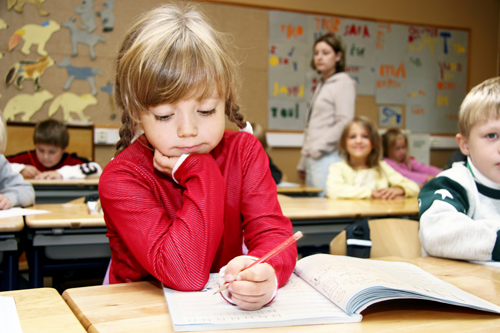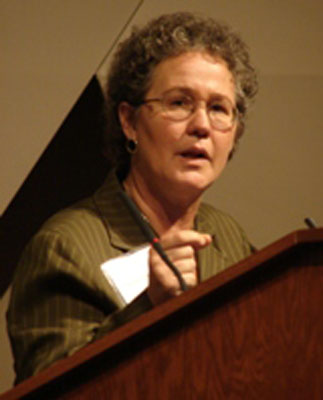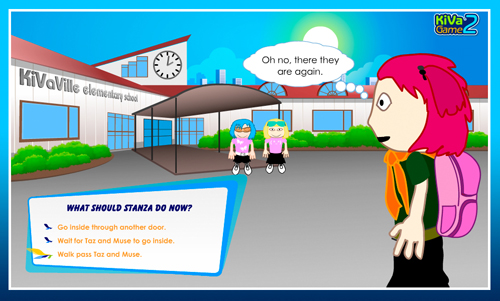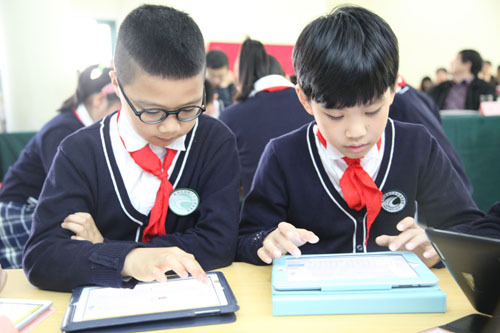Click here to read an original op-ed from the TED speaker who inspired this post and watch the TEDTalk below.
I stand before you heavy-hearted and tentative to let go of my second and last child who will graduate high school in just a few weeks time. Like other parents, I know that with an impending high school graduation, it is a nostalgic time charged with diverse and conflicting emotions. I feel joyful. I feel tearful. I feel liberated. I desperately need a hug. I reflect often on the 18 years of childhood that have simply gone with the wind.
I have been blessed. During the course of my son’s elementary and secondary school education, he has been able to forge warm and in some cases life-changing relationships with remarkable teachers. I believe these relationships have not only shaped him into the young man he is today, but also that these relationships will never disappear. Whether it was math teacher Mrs. Walker, who threatened to leave her post and seek employment with Jet Blue Airways whenever 4th grade homework wasn’t up to scratch; or Ms. McDermott, who wisely and respectfully allowed a shy, timid little boy to sit out theater class for months until he made it powerfully clear he was ready for center stage; or Mr. Samuels, whose bizarre, animated, hilarious classroom antics are undoubtedly responsible for turning my son into the passionate, curious and outstanding history scholar he is today — I know the legacy of these rich teacher-student relationships will endure.
A classroom is a community, a home away from home where our children spend approximately 5 to 7 hours a day with teachers for almost 10 months each year for 13 years of their pre-college lives. As a children’s book author, I have done readings in dozens of poor and rich classrooms all over the world for years. I can usually tell you in the first 5 minutes whether or not I am in a happy or unhappy home. It’s an instinctive feeling that slowly creeps over my body but resonates most strongly in my heart. Those positive or negative vibes usually have a lot to do with the man or woman responsible for the students in the room. Like the children, I can sense the ethos of the person in charge. I firmly believe that the most important thing in a classroom is the quality of the teacher, but additionally it is about the student-teacher relationship, which is absolutely critical to creating the best conditions for good learning experiences to take place.
So thank you Ms. Walker, Ms. McDermott, Ms. Gerken, Mr. Nick, Dr. Tobolsky, Mr. Knoche, Ms. Beck, Mr. Samuels, Ms. Enriquez, Ms. Ingraham, Ms. Miller, Mr. Wiesenfeld and all the other star educators I may have missed. Your inspiring anecdotes, smiley faces, terrible jokes, outrageous ties, positive reinforcement, dedication, high expectations, unconditional love, genuine concern and kindness will be cherished and valued for the rest of our lives. Long after the prefabricated content, the standardized tests, the seemingly endless hours of homework are forgotten, the positive relationships you took time to nurture through the passing years will remain the happiest memories of school days. These memories will be shared at life’s important milestones. They will be passed along from generation to generation. For it was these things that nurtured the souls, inspired the minds, and turned a brick and mortar establishment into a vibrant community. Thank you for igniting the spark that dared your charges to dig deeper, reach higher and believe each one of them is a somebody; a somebody that can make valuable contributions to themselves, to the lives of their loved ones and to the new world into which they shall now enter.
[ted id=1728]
In The Global Search for Education, join me and globally renowned thought leaders including Sir Michael Barber (UK), Dr. Michael Block (U.S.), Dr. Leon Botstein (U.S.), Professor Clay Christensen (U.S.), Dr. Linda Darling-Hammond (U.S.), Dr. Madhav Chavan (India), Professor Michael Fullan (Canada), Professor Howard Gardner (U.S.), Professor Andy Hargreaves (U.S.), Professor Yvonne Hellman (The Netherlands), Professor Kristin Helstad (Norway), Jean Hendrickson (U.S.), Professor Rose Hipkins (New Zealand), Professor Cornelia Hoogland (Canada), Honourable Jeff Johnson (Canada), Mme. Chantal Kaufmann (Belgium), Dr. Eija Kauppinen (Finland), State Secretary Tapio Kosunen (Finland), Professor Dominique Lafontaine (Belgium), Professor Hugh Lauder (UK), Professor Ben Levin (Canada), Lord Ken Macdonald (UK), Professor Barry McGaw (Australia), Shiv Nadar (India), Professor R. Natarajan (India), Dr. Pak Tee Ng (Singapore), Dr. Denise Pope (US), Sridhar Rajagopalan (India), Dr. Diane Ravitch (U.S.), Richard Wilson Riley (U.S.), Sir Ken Robinson (UK), Professor Pasi Sahlberg (Finland), Professor Manabu Sato (Japan), Andreas Schleicher (PISA, OECD), Dr. Anthony Seldon (UK), Dr. David Shaffer (U.S.), Dr. Kirsten Sivesind (Norway), Chancellor Stephen Spahn (U.S.), Yves Theze (Lycee Francais U.S.), Professor Charles Ungerleider (Canada), Professor Tony Wagner (U.S.), Sir David Watson (UK), Professor Dylan Wiliam (UK), Dr. Mark Wormald (UK), Professor Theo Wubbels (The Netherlands), Professor Michael Young (UK), and Professor Minxuan Zhang (China) as they explore the big picture education questions that all nations face today. The Global Search for Education Community Page
C. M. Rubin is the author of two widely read online series for which she received a 2011 Upton Sinclair award, “The Global Search for Education” and “How Will We Read?” She is also the author of three bestselling books, including The Real Alice in Wonderland.





Recent Comments